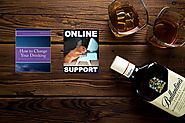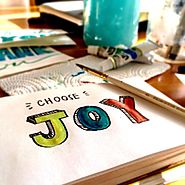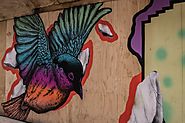-
About
- About Listly
- Community & Support
- Howto
- Chrome Extension
- Bookmarklet
- WordPress Plugin
- Listly Premium
- Privacy
- Terms
- DMCA Copyright
- © 2010-2025 Boomy Labs


 Juliet Abram
Juliet Abram
Listly by Juliet Abram
12-Step programs are not the best way to end addiction, in fact, they have been known to fail; America is in the midst of a huge heroin epidemic and now is the time to explore the best options for drug and alcohol rehabilitation.

Cars are dangerous but we don't tell people to stop driving cars, instead, we urge people to wear seat belts, and not drink and drive. Harm Reduction is the most practical, successful method aimed at reducing the harm drug and alcohol users do to themselves. Despite the name, The HAMS program also addresses drugs, and has a completely interactive workbook and online meetings, too. Abstinence-only sex ed classes didn't work; so why push the same model on addiction? Alcoholics Anonymous has only has a 5-10% success rate. That's like letting a student failing med school become a doctor. AA and it's other Anonymous cousins are all faith based, meaning they pray at meetings and the steps talk about God, so probably not something everyone is going to latch onto. We're in the middle of a heroin crisis in America and now is not really the time to use a 12-Step-only rehab model guaranteed to fail more than it can help; unfortunately, most U.S. rehabs only teach the steps.
The Alternative Program: HAMS (Harm Reduction, Abstinence, and Moderation Support)
Online Option: YES

Creative types can do this either in a group or on their own: magazine collages, painting, drawing, sculpting, writing, singing, playing an instrument, and so much more. There is even an American Art Therapy Association. Many find blogging and sharing stories, artwork and music online helps them and others to heal. Best part is this is completely free and can be done virtually anytime and anywhere making it a very portable program.
Alternative Program: Art Therapy/ DIY
Online Options: YES

Best known alternative program with face-to-face and online meetings is SMART Recovery, which has been around since 1994, even the former director Michael Botticelli of the Office of National Drug Control Policy spoke at SMART's 20th anniversary conference. Amazingly, for over 20 years the vast majority, around 80-90% of US rehabs are 12-Step only, and many will never mention SMART Recovery. That's a shame because SMART uses emotional behavioral therapy and motivation, which are the most effective ways to treat addiction. SMART is an abstinence-based, evidence-based program. Bonus: Leaders of meetings are actually trained and knowledgeable in the therapies SMART implements in their program; 12-Step meeting facilitators are not trained in any scientifically proven methods.
Alternative Program: SMART Recovery
Online Option: YES

Basically the Facebook of those looking to stop drinking. It's a platform that brings together a wide range of users from total teetotalers to those who just need a break for like a month. I'm specifically including Hello Sunday Morning because problem use, like binge drinking, is often the beginning of addiction. Any problem use is, well, a problem. Members cheer on other members, even those who are on the fence about not drinking for any amount of time; others find they feel so great after 30 days they go for 60 or 90 days or even more; there are tons of blogs online that also help foster connections; and let's face it, some days it's better to stay home in one's jammies and not have to leave the house to go to some face-to-face meeting; and a lot of people have social anxiety so this is something truly useful.
Alternative Program: Hello Sunday Morning
Online Option: YES

Imagine fighting off the demons of drugs and booze with music and art instead of being exposed to confrontation and fear tactics that are too common in regular 12-Step rehabs. Meeting people where they're at, even if they haven't quit or don't want to quit entirely, is harm reduction. The Center for Motivation and change is a great example of using motivational interviewing and cognitive behavioral therapy instead. They have services in New York and Massachusetts. They use Community Reinforcement and Family Training or CRAFT which encourages loving one's self and teaching the family to show their addicted loved one love too instead of tough love or detachment; on the flip-side 12-Step programs focus on character defects and wrongdoings; in fact, not one single step mentions caring about one's self or loving one's self. If cost or distance is an issue, look at online options or a therapist near you specializing in the same treatments.
Alternative Program: The Center for Motivation & Change (CRAFT)
Online Option: NO (they have a blog, Facebook page, and newsletter via e-mail)
